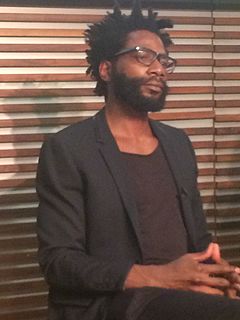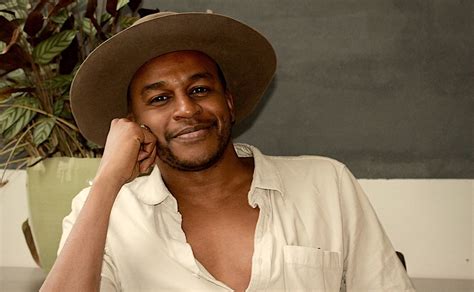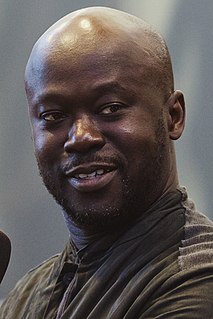A Quote by Jake Barton
A lot of our insights are based on the ways in which people spend time at museums. They're curious, open, interested, and engaging. They want to express themselves and see their own identity refracted through the museum's.
Related Quotes
I think about museums often. There are things that I want museums to do that they often don't. For me, I like it when there's a system within the museum that can continuously change - whether it's a museum that is nomadic or one that's designed so the building can shape-shift. I like restless spaces, and I want to be engaged.
I used to like people more, but now I have children and that changes your life in a lot of ways. Like you spend time with people you never would have chosen to spend time with, not in a million years. I spend whole days with people, I'm like, "I never would have hung out with you. I didn't choose you. Our children chose each other based on no criteria by the way. They're the same size. They don't care who they make me hang out with."
We tend to become social core groups, whatever our similar interest and background where we came through. It tends to be a filter through which people see themselves. It can be all different ethnicities. They can see themselves as San Franciscans, or Warriors fans. You want to build a tribe of viral advocates for that team.
Through panel moderations and talks around culture, politics and identity I gradually gained opportunities to write in my own voice and not that of the brand. I'm interested in a lot of the languages that drive our culture. I'm interested in user experience as language or how societal malaise takes root. So through essays and short stories I began exploring some of these things.
When you go into the whole realm of creating your own music and seeing the project through, it's increasingly difficult because nowadays a lot of people are making music all on their own - the individual instead of the band. And when you have such a solid vision and you spend so much time working on one idea and allowing it to manifest in your mind through a record, and then you have to go and find people to help you see it through live, it gets really overwhelming, to have to project and really clearly state what you're trying to do and how you want them to do it.
The museum in D.C. is really a narrative museum - the nature of a people and how you represent that story. Whereas the Studio Museum is really a contemporary art museum that happens to be about the diaspora and a particular body of contemporary artists ignored by the mainstream. The Studio Museum has championed that and brought into the mainstream. So the museums are like brothers, but different.








































